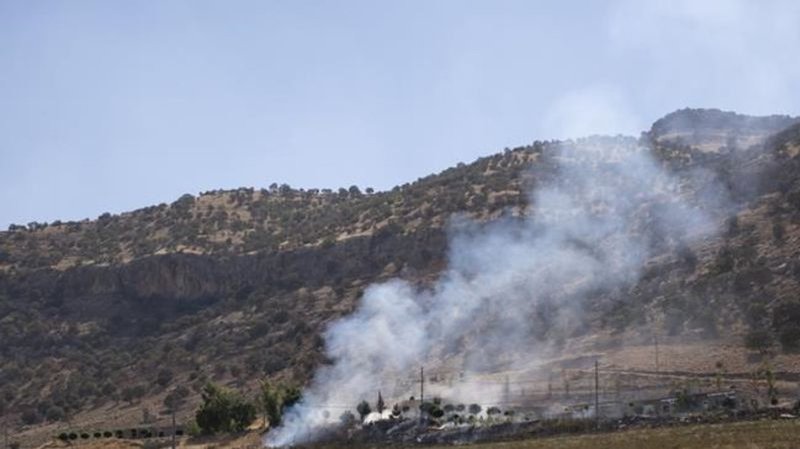
Kurdish officials: Death toll climbs in Iranian drone attack
KOYA, Iraq (AP) — An Iranian drone bombing campaign targeting the bases of an Iranian-Kurdish opposition group in northern Iraq on Wednesday killed at least nine people and wounded 32 others, the Kurdish Regional Government’s Health Ministry said.
The strikes took place as demonstrations continued to engulf the Islamic Republic after the death of Mahsa Amini, a 22-year-old Iranian Kurdish woman who was detained by the Iranian morality police.
Iran’s attacks targeted Koya, some 65 kilometers (35 miles) east of Irbil, said Soran Nuri, a member of the Democratic Party of Iranian Kurdistan. The group, known by the acronym KDPI, is a leftist armed opposition force banned in Iran.
Iraq’s Foreign Ministry and the Kurdistan Regional Government have condemned the strikes.
